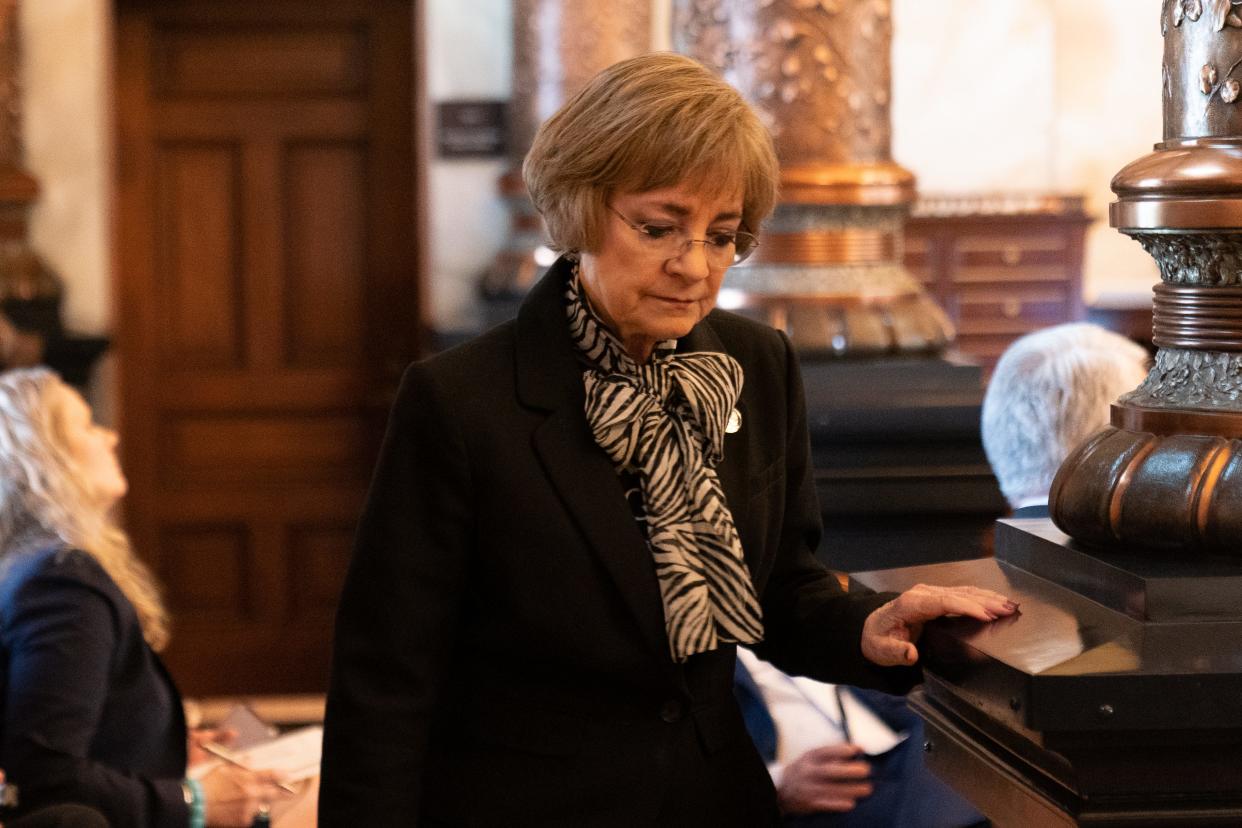Anti-public health politics get tepid support from Kansas Republicans, but bill still passes

Three weeks after a more sweeping anti-vaccine and anti-mandate public health bill failed to pass the Kansas Senate, Republicans rolled out a somewhat narrower version that managed to received only tepid support on the final day of the legislative session.
House Bill 2285 managed to pass the House 63-56 and the Senate 22-18 with Republicans divided, but the vote totals are far from the supermajorities needed to override a likely veto from Gov. Laura Kelly.
The bill contains the somewhat less controversial components of House Bill 2390, which failed in the Senate earlier this month.
Gone were more sweeping anti-vaccine provisions and an expansion of religious and non-religious exemptions for schoolchildren and child care attendees. Also missing were provisions removing school staff from the list of mandated reporters of infectious diseases and nixing the Kansas Department of Health and Environment's authority to designate reportable infectious disease.
More: Sweeping anti-vaccine bill with target on Kansas public health authorities fails in Legislature
But the bill still had a provision banning the KDHE from requiring COVID-19 vaccination to attend school or day care. And more alarming to Democrats and some Republicans were provisions banning state and local public health authorities from ordering public gatherings to ceases and mandating quarantines and isolations for people infected with or exposed to contagious diseases.
"This is a knee-jerk reaction to what we just lived through for the past three years," said Rep. John Eplee, R-Atchison and a family physician. "We're still trying to recover from what happened during the pandemic. The pandemic was unbelievable, and I think well-meaning people in public health tried to make the right decision. … There is a lot of anger with a lot of Kansans over what we lived through because they feel like the heavy hand of public health came down on them."
Eplee urged a more thoughtful approach than voting on a bill on the last day of the legislative session after it had never been vetted by a House committee or the full chamber.
But Sen. Mike Thompson, R-Shawnee, worried that not passing public health reforms this year will make it harder to do so in the future.
Anti-vaccination and anti-mandate legislators and their vocal supporters have had public hearings, but have otherwise been largely unsuccessful in passing legislation since the November 2021 special session.
More: Topeka senator calls for security as frustrations flare at Kansas anti-vaccine hearing
"My concern over not passing this bill is that the farther we get away from COVID, the more our memories fade about what actually happened," Thompson said. "The spirit of this bill is to address that, and if we go another year or two without addressing that, then these type of arguments that we just heard in this exchange become more likely to be weighted toward, 'Let's go back to having the health officer be able to close churches, be able to shut down schools, be able to do all these restrictive measures' that we felt at the time were overstepping."
Rep. Pat Proctor, R-Leavenworth, said unelected bureaucrats abused their power during the pandemic. Rep. Steven Howe, R-Salina, said his family experienced that with isolation and quarantine orders when one of them became sick.
"For me, this was a step too far," Howe said. "This was about tyranny. It wasn't about public health."
"Never in this country have we quarantined healthy people," said Sen. Beverly Gossage, R-Eudora.
Instead, she said, the government should only have the power to educate and recommend.
Sharing with his colleagues that his father died of Creutzfeldt-Jakob Disease, the human form of Mad Cow Disease, Sen. Jeff Longbine, R-Emporia, worried the bill "will cause huge havoc in public health."
"I understand the health freedom portion of this and your individual liberty," Longbine said. "But your individual liberty and your health freedom does not get to expose me, my family members, my team members or my colleagues to that."
While she said the pandemic response was a "governmental overreaction," Sen. Kristen O'Shea, R-Topeka, pointed to the bill's repeal of fines or other punishments for people who knowingly expose other people to infectious diseases. She said it is a felony to simply threaten to expose animals to a disease.
"How do you justify legislation that would result in our statutes putting a higher value on the price of eggs than the life and health of its citizens?" O'Shea said.
Thompson argued that diseases can't be controlled.
"We're just saying with this bill, if you think anyone can control a disease, you don't understand science," he said. "What we do say with this bill is that people need to be informed."
Sen. Mark Steffen, R-Hutchinson, said the current public health model is "socialist," instead of educating and making recommendations.
Arguing against the effectiveness of masks, shutdowns and vaccines, Steffen contended ongoing economic fallout was the fault of the pandemic public health response itself. Meanwhile, Eplee posited that without the response, the economy would have been worse off.
"The big divide in this country," said Rep. Ken Corbet, R-Topeka, "is a lot of people wake up and have government run your lives, and there's the rest of us who wonder why government's even here at all."
This article originally appeared on Topeka Capital-Journal: Kansas Republican anti-vax anti-mandate bill passes with tepid support

